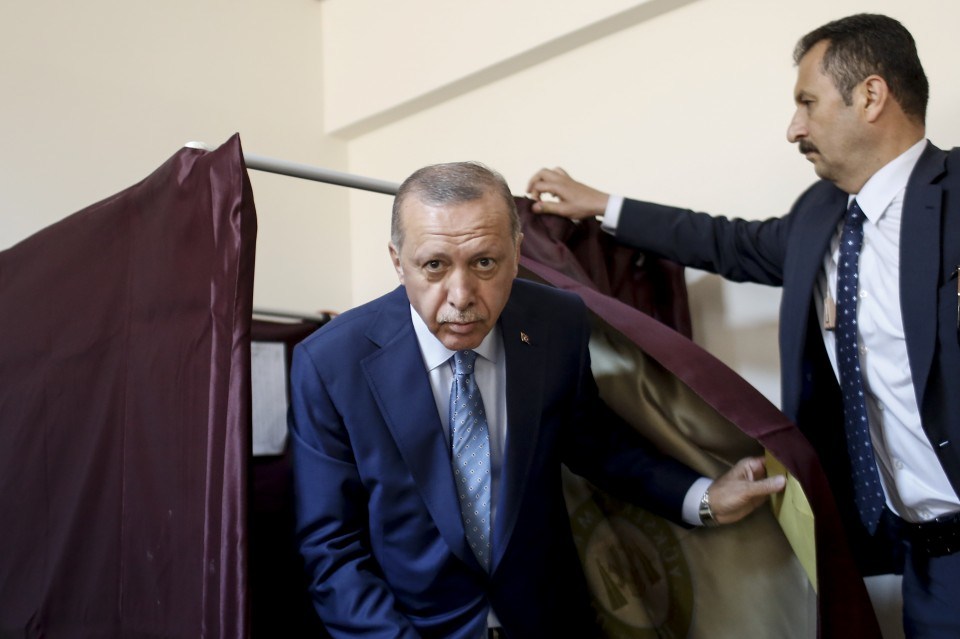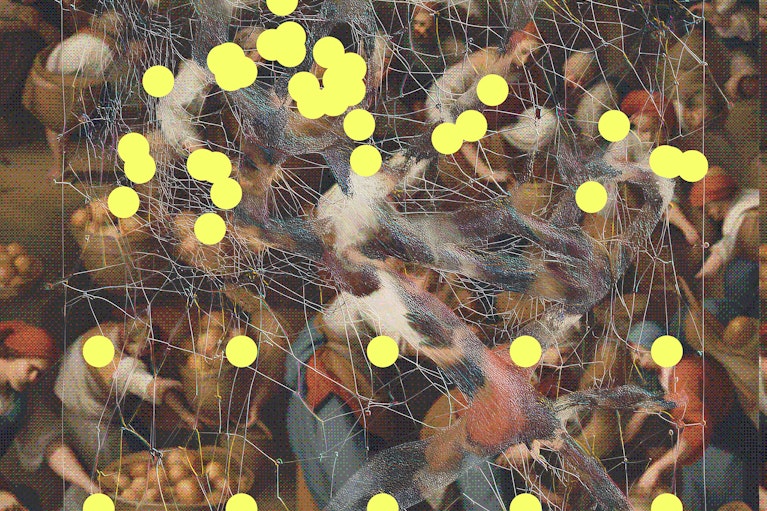Omer Taspinar is a nonresident senior fellow at the Brookings Institution, a professor at the National War College and an adjunct professor at Johns Hopkins University’s School of Advanced International Studies.
“There is something rotten in the state of Turkey,” was how an opposition activist friend of mine sarcastically summed up his frustration yesterday on a phone call. As we hung up, Turkey’s official news agency was rushing to declare election results that crowned Recep Tayyip Erdogan as Turkey’s first president under a new system that gives him vast power. Sunday’s victory, in which he not only won the presidency but his Justice and Development Party (AKP) came in first with 42 percent of the parliamentary vote, is probably the most significant one in Erdogan’s long political career.
The AKP will now control parliament thanks to its coalition with the Nationalist Movement Party (MHP), a virulently anti-Kurdish, chauvinistic party, which did surprisingly well with 11 percent of the votes. In fact, nationalism appears to be the real victor in these elections. Despite all attempts to suppress the Kurdish vote, the pro-Kurdish Peoples’ Democratic Party (HDP) still managed to win 11.7 percent of the vote.
These election results show that polarization along ethnic lines has clearly become a defining feature of Turkish politics. Under this hyper-centralized new presidential system, Erdogan now has all the levers of political power at his disposal: absolute control over the legislative body, the judiciary and, of course, the executive office. Power has not been so centralized and personalized in the hands of one man since Mustafa Kemal Ataturk founded the republic in 1923.
There is, however, one crucial thing that Erdogan is missing: democratic legitimacy in the eyes of his opponents. Any attempt to analyze why the opposition lost in Turkey should start with the obvious: these elections were not free, and they were certainly not fair. His Shakespearian reference aside, my friend’s feelings of despair and frustration about the rotten nature of Turkish politics is shared by millions of citizens who voted for opposition parties. Their confidence in the system is shattered for understandable reasons.
People went to the polls under an emergency rule that severely curtailed freedom of expression, assembly and association; under a media that is largely controlled by the government; under conditions where the Kurdish party leader campaigned from his prison cell; under conditions where the government mobilized all its financial resources to secure victory and perhaps most importantly under conditions where voters had major concerns about electoral fraud. In an astonishing sign that something was indeed rotten in Turkey, four days before the vote, the country’s official news agency mistakenly shared the final election results with a government-friendly TV channel: Erdogan appeared to be winning the presidency by 53 percent with opposition candidates far behind.
Last year, when Turks approved with a very narrow margin of victory the new presidential system that Erdogan coveted for so long, suspicion about electoral fraud was based on solid ground. According to most European election monitors, there was systemic ballot-stuffing and other serious irregularities. Observers from the Council of Europe and the Organization for Security and Cooperation in Europe stated that close to 2.5 million votes — roughly twice the margin of victory — were manipulated.
The new presidential system was therefore born under suspicious circumstances. Making a mockery of such concerns, in March 2018, the AKP-dominated Turkish parliament approved a law that made electoral fraud effectively legitimate by enshrining the decision to accept unstamped ballots. The deck was clearly stacked against the opposition. But Erdogan still seemed nervous and in a hurry to declare victory before Turkey’s economic dynamics turned from bad to worse.
Despite Erdogan hoping to catch the opposition unprepared by calling for a snap election this year instead of next, the opposition appeared surprisingly ready, energized and united. The Republican People’s Party (CHP) was quick to help the newly-formed Iyi Party to qualify to run. The two parties then brought on board a small conservative religious party, hoping to draw religious voters. Members of the opposition also committed to supporting whomever became the strongest candidate to run against Erdogan in a potential run-off. They all naively hoped that Erdogan would not be able to receive 50 percent of the votes to win the presidency outright.
Hope is a dangerous feeling in politics because it exacerbates frustrations. But hope is also what makes democracies function. Every election is a new hope for contenders. But when your hopes are repeatedly crushed, you lose faith in politics. Even worse, you lose faith in the legitimacy of the system. I am afraid this is the point we are perilously approaching in today’s Turkey.
Erdogan’s pyrrhic victory will only exacerbate the country’s polarization. He is a master performer of time-honored methods from the script of populist autocrats. He controls the media, silences critics, rewards sycophants and distributes economic favors to cronies. If necessary, he rigs elections. At the end of the day, Turkey’s strongman has managed to consolidate his rule behind a semblance of democratic legitimacy.
So what’s next for Turkey? The Turkish model that was supposed to prove the compatibility between Islam, democracy and secularism is no more. But make no mistake: the model collapsed not because of a clash between Islam and secularism. The real story is the rise of authoritarian Turkish nationalism.
Today, Turkey is deeply polarized along ethnic lines. Erdogan’s victory came not thanks to his Islamic message but thanks his coalition with Turkish nationalists. The real victor of these elections is not Erdogan but an angry Turkish nationalism with all its anti-American, anti-Kurdish and anti-Europe characteristics. What we are witnessing in Erdogan’s Turkey is not an Islamic revolution. It is an alarmingly big step toward nationalist fascism.
This was produced by The WorldPost, a partnership of the Berggruen Institute and The Washington Post.





